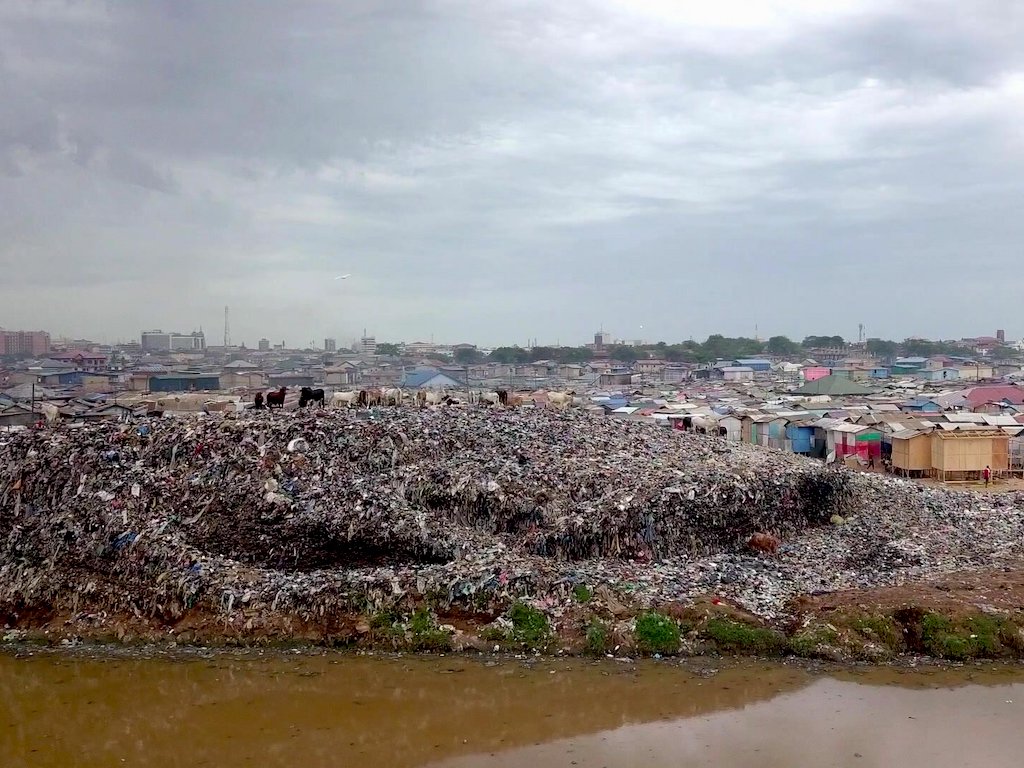As conscious consumers continue to put pressure on brands to step up their sustainability efforts, circularity has taken over fashion as a top buzzword. But Fashionscapes, a new documentary film showcased at the London Fashion Week, suggests that companies are using circular fashion as a greenwashing tool to cover up how recycling clothing might not always work as well as billed.
Screened this week at the London Fashion Week, the new documentary film Fashionscapes: A Circular Economy exposes how fashion brands are misleading consumers about the sustainability of their clothing by marketing items as “circular” in one way or another. The film is the latest installment of the Fashionscapes series created by acclaimed True Cost film director Andrew Morgan and Eco-Age co-founder Livia Firth.
Faux circular fashion economy
“The new episode of Fashionscapes uncovers how fashion’s big chance to embrace circularity and escape a destructive take-make-and-waste model is being undermined by greenwash and oil, and why circular fashion is worth fighting for,” states the synopsis of the film.
Over the course of the documentary, Morgan and Firth expose the “faux circular economy” that is taking over the fashion landscape, which is slowing down meaningful change towards better outcomes for people and the planet. Big brands are using terms like “circular” and “recyclable” for their mass-produced clothing, which is often of too poor quality to ever be upcycled and given a new life.
In one scene, mountains of discarded clothing arrive at Kantamanto market in Ghana. Some of it gets repaired and repurposed, but the majority ends up being landfilled simply because they are too worn out to be reused, or features too many fastenings, buttons and zippers to take apart for proper recycling.

Despite this reality of nearly 40% of the apparel ending up as trash, clothes that are sent to this site are being recorded by brands as “recycled”.
“This is circularity as greenwashing,” says Morgan. “This idea has been used to allow big corporations to put a recycling bin in a store whilst continuing to use supply chains that wreak havoc on the natural world.”
Circularity is being ‘hijacked’
The ultimate takeaway of the documentary is a stark warning that the term “circularity” or “circular economy” is in the process of being co-opted by an industry that is still prioritising profits and failing to transition away from the linear make-and-throw system.

Experts such as fashion sustainability analyst Veronica Bates-Kassatly and Australian wool grower Charles Massy feature in the film to explain how big brands’ claims are often not backed up by any real evidence. Consumers are being misled into believing false claims such as the idea that plastic can be recycled infinitely, or how their clothing is being fully repurposed at end-of-life.
“Circular economy is in danger of being hijacked and fashion could lose the opportunity to change,” say the makers of the Fashionscapes series. “Millions of global citizens who love the industry [are] unaware that they are trapped in a linear economy and that they are complicit in a system of “overproduction for overconsumption” driven by the models of production like fast fashion.”
Firth says that she hopes the film’s investigation, while exposing the fast fashion industry’s lies, offers a “story that can allow us to imagine a future filled with possibility…[and] elbow its way in front of dystopian visions.”







